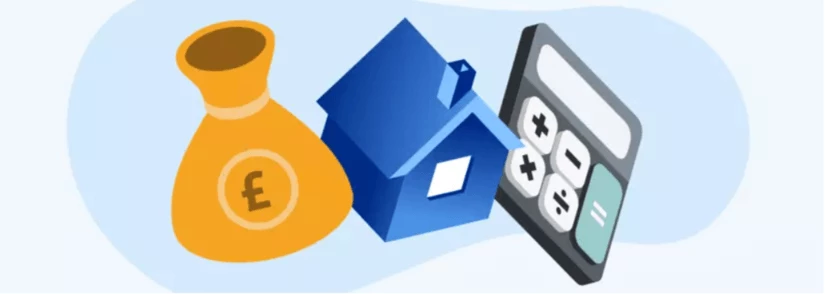Stamp Duty Calculator: What Is Stamp Duty in Ireland?

In Ireland you pay 1% stamp duty On the first €1,000,000 on your property. Stamp duty is a tax that all first-time buyers should be aware of. It’s important to budget for all the expenses you incur when you buy a new property and stamp duty is one of the most crucial to save for. In our stamp duty guide, we’ll walk you through how stamp duty in Ireland works and you can even see how much you’ll pay on our stamp duty calculator!

Moving House? Set up All Your Utilities At Once!
Set up your energy, broadband and waste in one hassle-free call!

Need To Sort Out Your Utilities for Your Move?
We're currently closed but please leave us your number and we'll give you a free call as soon as we're open!
What Is Stamp Duty in Ireland?

Stamp duty in Ireland is a tax you pay when you become a property owner. For both first-time buyers and second home owners, stamp duty is applied when there’s a transfer of ownership. Stamp duty in Ireland is taken as a percentage of the value of the property, so the more expensive the property, the higher your stamp duty will be.
Stamp duty is not only used for properties but also on other financial transactions such as transferring stock and shares. For the purpose of this guide however, we’ll only focus on the stamp duty on properties to avoid confusion.
When Do I Pay Stamp Duty?

When buying a house, you will usually be working with a solicitor who will help you out with all the legal aspects of the purchase. Before you’ve completed the transaction and before taking over the ownership of the property, your solicitor will calculate the stamp duty you need to pay for you.
You will usually need to pay the stamp duty within a month and it will be paid onto the Revenue Commissioner. If you don’t pay the stamp duty, your property deeds won’t be registered.
Who Pays the Stamp Duty?
Stamp duty is paid by the purchaser of the property and by the person whose name will be on the deeds. In the case of a joint ownership - such as under a tenants in common arrangement - each party in the agreement is liable for paying the stamp duty.

Moving House? Set up All Your Utilities At Once!
Set up your energy, broadband and waste in one hassle-free call!

Need To Sort Out Your Utilities for Your Move?
We're currently closed but please leave us your number and we'll give you a free call as soon as we're open!

What Are the Stamp Duty Rates?
The rates for stamp duty in Ireland depend on the value of the property and how many properties are being bought. It also depends on the condition of the property such as whether it’s a new build or second hand and if it’s a residential or non-residential. The actual amount of stamp duty will be calculated by your solicitor, but it’s a good idea to have a sense of how much you’ll most likely be paying.
Residential Stamp Duty Rates in Ireland
In Ireland, residential stamp duty is paid on all residential properties, but there are thresholds that exist here you’ll pay more if your property is over a certain amount:
| Property Value | Stamp Duty |
|---|---|
| On the first €1,000,000 | 1% |
| Any amount over €1,000,000 | 2% |
Stamp Duty Example Say you’re buying a property worth €1,200,000. The stamp duty you pay will mean that for the first €1,000,000 you’ll pay 1% and for the remaining €200,000 you’ll pay an added 2%:
1% of €1,000,000 is €10,000
2% of €200,000 is €4,000
This means you’ll pay a total of €14,000 on your stamp duty for your property.
What About New Builds?
Stamp duty is the same for new builds however it does usually work out a little lower because it is calculated from the price of the property without the 13.5% of VAT. This means that a property worth €300,000 would pay only €2,595 in stamp duty instead of €3,000.
What About Stamp Duty on Multiple Properties?
If you’re buying multiple properties, you’ll usually pay a much higher rate for your stamp duty than on just a single property. If you’re buying 10 or more properties that can be either houses or duplexes, you will need to pay a total stamp duty worth 10% of the total amount.
Stamp Duty on Multiples Properties Example For example, if you have bought 12 properties of varying value, you will need to have paid the 10% rate on the value of all the properties. If you bought:
4 properties worth €150,000
2 properties worth €230,000
6 properties worth €100,000
In total, you will have paid €1,660,000, meaning you would need to pay €166,000 in stamp duty.
If you are leasing your properties to an organisation that provides social housing, you can claim a refund back on your stamp duty. To do this, you must leave the property within 2 years of completing the purchase and have leased the property for a minimum of 10 years.
Non-Residential Stamp Duty Rates in Ireland
For non-residential properties, the stamp duty rates are a little different. In all cases of purchasing a non-resident property, the stamp duty is 7.5% of the property’s value. If you buy a property that you are going to use as both a residential and for your business, you will pay the residential rate of stamp duty instead.

Moving House? Set up All Your Utilities At Once!
Set up your energy, broadband and waste in one hassle-free call!

Need To Sort Out Your Utilities for Your Move?
We're currently closed but please leave us your number and we'll give you a free call as soon as we're open!
Are There Stamp Duty Exemptions in Ireland?
There are some exceptions to stamp duty in Ireland that occur in certain circumstances depending on the situation between the owners. Unfortunately, there are no longer any stamp duty relief programmes available for first-time home buyers or people from disadvantaged situations.
- Property Transferred Between Spouses, Partner and Cohabitants
Property transferred between spouses, civil partners and cohabitants are not charged with stamp duty and are always exempt. In these situations, the deeds can be passed on without restrictions and without it needing to impact your finances. - Farm Transfers
If you own a farm and are passing it on to family members, you can qualify for having the stamp duty tax reduced to 1%. You must have either lived on the farm for 6 years or have leased it for a minimum of 6 years.

